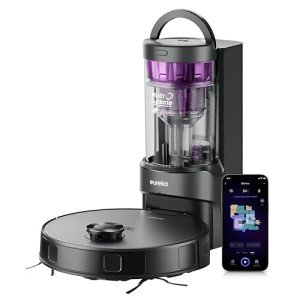How To Become A Prosperous Robot Vacuum Cleaner Price Even If You're Not Business-Savvy
Understanding Robot Vacuum Cleaner Prices: A Comprehensive Guide
Over the last few years, robot vacuum have changed the method people clean their homes. Their ease of use, benefit, and advanced technology have actually made them significantly popular. Nevertheless, with a plethora of models and functions offered, prospective buyers often find themselves asking a crucial question: What should I anticipate to pay for a robot vacuum cleaner? This article intends to clarify the costs connected with robot vacuum cleaners, factors that influence their prices, and pointers for discovering the best gadget for your budget.
The Price Range of Robot Vacuum Cleaners
Robot vacuum cleaners can vary extensively in price. Here, we break down the normal price variety for different categories:
Category
Price Range
Description
Entry-Level
₤ 100 – ₤ 250
Basic features, suitable for little areas, very little smart innovation.
Mid-Range
₤ 250 – ₤ 500
Improved cleaning capabilities, better navigation, some smart functions.
High-End
₤ 500 – ₤ 1,000+
Advanced mapping, powerful suction, internet connectivity, and app integration.
Entry-Level Models
Low-cost robot vacuums are perfect for those who need a basic cleaning tool without luxury features. They often manage tough floorings well but might deal with carpets and are normally less durable.
Mid-Range Models
These vacuums often come geared up with much better suction power and more intelligent navigation systems, making them ideal for bigger homes with combined flooring. Many designs in this variety deal Wi-Fi connection and smart device control.
High-End Models
High-end robot vacuums are created for serious cleaning lovers. They generally use advanced mapping technology, powerful suction, and integrated cams for improved navigation. Furthermore, many high-end designs allow for vacuuming on a schedule and even have the capability to empty their dust bins immediately.
Elements Affecting Robot Vacuum Prices
Comprehending the factors that can influence the price of a robot vacuum can help consumers make more educated buying choices. The following list details some key features that can impact price:
Brand Reputation: Established brands normally carry a higher price due to their reputation and reliable consumer assistance.
Cleaning Technology:
- Suction Power: More effective designs will be more pricey.
- Navigation Systems: Advanced designs with much better obstacle detection and mapping capabilities cost more.
Smart Features: Models that use connectivity to apps, voice control compatibility, and advanced scheduling alternatives tend to be priced higher.
Battery Life: Longer-lasting batteries usually lead to a higher price, as they permit the vacuum to tidy larger areas without requiring to charge.
Dustbin Size: Larger dustbins can be easier for customers, promoting a greater price point.
Additional Features: Some vacuums provide mopping abilities, self-cleaning functions, and high-efficiency filters, which can increase their price.
Budget vs. Features: What to Consider
When acquiring a robot vacuum, it's vital to weigh your budget versus the functions you most desire. Here are a number of considerations to help you make a notified decision:
1. Examine Your Home's Needs
Size of Space: Larger homes may gain from more innovative vacuums that can cover more ground without regular recharging.
Floor Types: If your home consists of a mix of carpet and difficult floorings, select a vacuum designed for both.
2. Determine Desired Features
- Decide which features are essential for you, such as scheduling, app connectivity, and cleaning modes.
3. Price vs. Durability
- While a higher financial investment can yield longer-lasting designs, it's worth thinking about lower-cost options if you're unsure about long-term use.
Frequently Asked Questions (FAQs)
Q1: Are robot vacuums worth the investment?
A1: If you lead a busy way of life or have movement concerns, a robot vacuum can save significant effort and time in cleaning, making them a beneficial investment.
Q2: How often should I replace a robot vacuum?
A2: Depending on the design and usage, a robot vacuum normally lasts between 3 to 5 years. High-end models may last longer with appropriate maintenance.
Q3: Can a robot vacuum entirely replace a standard vacuum?
A3: While robot vacuums effectively manage daily cleaning, they may not replace conventional vacuums for deep cleaning, particularly in multi-level homes or areas requiring comprehensive care.
Q4: What is the typical lifespan of a robot vacuum?
A4: The lifespan of robot vacuums varies by design, but a lot of last in between 3-5 years with regular maintenance, like dustbin emptying and filter changes.
Q5: Do robot vacuums work on carpets?
A5: Yes, however the effectiveness will depend upon the design. Higher-priced models typically have better suction power to clean carpets effectively.
The market for robot vacuum is varied, with designs to fit different budget plans and cleaning requirements. Whether consumers are looking for a fundamental cleaning tool or an innovative device equipped with numerous smart functions, understanding the price ranges and aspects impacting costs is essential. With Robot Vacuum Mops to consider of private requirements and monetary restraints, possible buyers can discover a robot vacuum that will improve their cleaning regular and offer long-term fulfillment.
